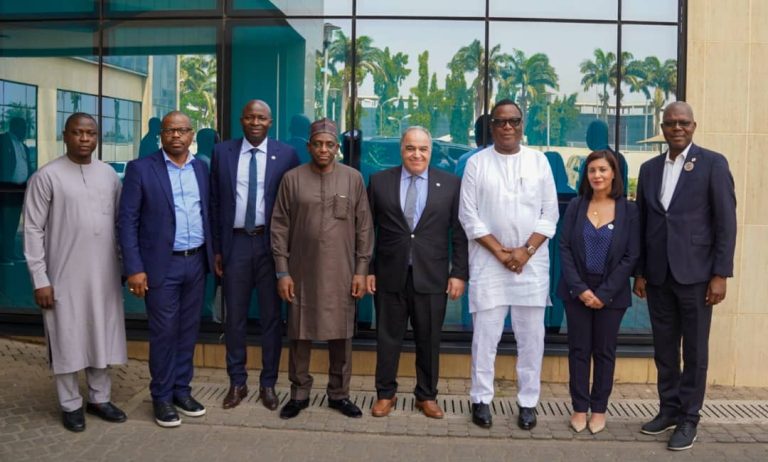
MAJOR Oil Marketers Association of Nigeria, MOMAN, has expressed surprise over the growing queues at petrol stations in Lagos, Abuja and other parts of the country, insisting that the product was available at depots.
The persistent petrol shortages which had briefly abated following the intervention of the Department of State Security, DSS, returned two days ago as consumers geared up for the festive season.
Checks by Vanguard around Abuja, the nation’s capital, showed that queues had returned to pre-DSS intervention period, although the pump price has remained the same at N180 per litre at major marketers’ outlets and N250-280 at filling stations operated by independent marketers.
On the whole, most stations remained closed due to the unavailability of petrol and this has made plans by Nigerians to travel for the yuletide a major challenge.
Speaking to Vanguard in a telephone chat, Executive Secretary of MOMAN, Mr. Clement Isong pointed out that marketers and tanker drivers have worked very hard in the past weeks to ensure that the product was available across the country.
Isong said the continuing queues was surprising but noted that demands may have grown beyond what it used to be.
He said: “I don’t know why there are still queues. I think people have been working flat out in the last two months and they are getting tired, especially at the front line. We have worked hard in the past six to eight weeks. Maybe, mini fatigue may have set in, I don’t know.
“But I can confirm that we do have products and that we are working, Saturdays and Sundays inclusive, and we are continuing to push out the product to the stations. At MOMAN, we concentrate on sending out the products to the stations. The demands have gone up, maybe because we are selling at controlled prices.
“Our people are doing everything they can to ease the situation. At the depots, they are working flat out, the truck drivers are working flat out, transporters are working flat out, the dealers are working and pump attendants are working flat out. They have been doing so in the past weeks. I suspect that they are beginning to get tired.
“We have the product and we are selling, it is just that the demand is high. We are selling flat out. Normally, a station that we send one truck, we send two trucks and the product finishes in no time,” he added.
Also speaking to Vanguard from Port Harcourt, the Independent Petroleum Marketers Association of Nigeria, IPMAN, Public Relations Officer, Chief Chinedu Ukadika, insisted that it was almost impossible for independent marketers to sell below N200 per litre because they buy at private depots.
“I told you last week that the product we got due to NNPC intervention will last for only a few days and that by this week, the queues will return. This is because, first, the government depots are not working. NNPC gives all its products to private depots which in turn sell to us at 207/210.
“Even then, it takes days after payment before you can get the product. I have told you before, there is a shortage of the product in the country. Anyone saying otherwise is not telling you the truth,” he added.
Speaking on the issue in Abuja, President of Petroleum and Natural Gas Senior Staff Association of Nigeria, PENGASSAN, Mr. Festus Osifo blamed the high rate of smuggling of petrol to neighbouring countries for the problem.
Osifo therefore urged the Federal Government to action and strengthen securities at the borders.
“We demand that the various security agencies, especially the men of Nigerian Customs and Immigration charged with manning the nation’s borders act professionally and in dictates to their oaths of allegiance to stop high rate of smuggling of the products across the West African countries. The various depots and other storage facilities especially those owned and operated by NNPC should be upgraded and made accessible to all operators to lift the product.”
Giving context to the challenges in the downstream sector, petroleum industry consultant, Mr. Henry Adigun noted that the crude oil available for the Direct Sales Direct Purchase, DSDP, has become inadequate and has made the programme ineffective.
The DSDP, according to the NEITI 2020 Oil and Gas report, is an arrangement used to ensure availability of petroleum products. “Under the DSDP arrangement, NNPC delivers monthly crude oil lifting on Free on Board, FOB, basis to suppliers, who in return deliver petroleum products of Nigerian standard specification to NNPC on Delivered at Place, DAP, basis, at designated safe port(s) in Nigeria”.
Mr. Adigun noted that the “DSDP can’t be effective for many reasons. The DSDP was worked on using the domestic crude allocation to trade for finished products. On the basis of this you have the 445,000 barrels domestic allocation. You sell it at good value and then use the nominal value to get products in.
“The DSDP can no longer cover the volume of petrol the country needs. When DSDP was conceived, it was estimated that our consumption figures at that time would not exceed 30 million litres per day but current figures from NNPC suggest that we consume 60-64 million litres daily. You must know that we don’t just import petrol for Nigerians, we also import for neigbours.
“This is because to keep supplying to Nigerians, neighbours have to be supplied too, otherwise all the products in Nigeria will go abroad due to huge price differentials.”
(Vanguard)








